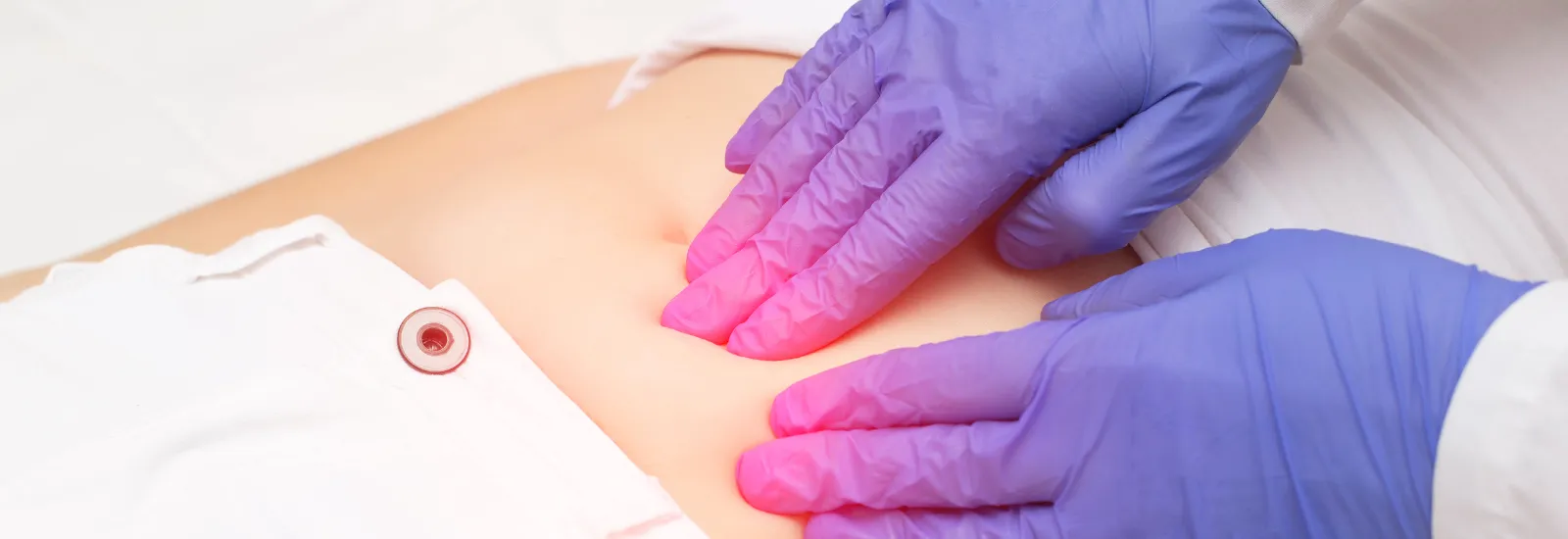
Understanding ovarian cyst symptoms
Ovarian cysts are common among women
of all ages. Although most are small and not harmful, larger ovarian cysts can
cause uncomfortable symptoms, such as abdominal discomfort, that need
treatment. Ovarian cysts that develop after menopause are less common and
require further evaluation.
The only way to confirm you have a
cyst on the ovary is to visit an OB/GYN who can perform a pelvic exam or an
imaging scan. Some ovarian cysts are nothing to worry about while others may
need medical attention.
What is an ovarian cyst?
An ovarian cyst is a fluid-filled sac
that forms on or around the ovaries during hormonal changes, such as during the
menstrual cycle or menopause.
There are several kinds of ovarian
cysts:
- Functional cysts, which are the most common type of ovarian cysts, occur during ovulation.
Follicular cysts and corpus luteum cysts are both types of functional cysts. These
usually disappear on their own without treatment, typically within a month or
two.
- Cystadenoma is a noncancerous tumor on the outer
surface of an ovary. These tumors can grow to become very large.
- Endometrioma is a type of ovarian cyst caused by endometriosis, a condition in which tissue similar
to the tissue lining the uterus grows outside the uterus.
- Dermoid cyst, also called a teratoma is a cyst or tumor that contains materials from the body such as hair, fat, or skin. Although these cysts are usually noncancerous, they can develop into cancer at times.
Ovarian cyst symptoms to know
In many cases, small ovarian cysts
won't cause symptoms. But in some cases, particularly if the cyst is large,
uncomfortable symptoms may develop.
Ovarian cyst symptoms may include:
- Abdominal pain that may be dull or sharp
- Bloating
- Breast tenderness
- Irregular periods
- Nausea or vomiting
- Pain affecting the lower back or thighs
- Pain during bowel movements
- Pain during intercourse
- Pelvic pain during the menstrual cycle
- Pressure in the abdomen
In rare cases, a large cyst can cause
the ovary to twist and move away from its original position, which is known as ovarian torsion. This twisting can cause sudden,
intense pain on one side of the abdomen that may come and go. In rare cases,
cysts can rupture. A ruptured ovarian cyst can cause sharp or severe pelvic
pain, fever, breathing difficulties, and dizziness.
If you experience severe or
unrelenting abdominal pain, have it checked out promptly since both ovarian
torsion and ruptured ovarian cysts can become life-threatening if not treated
quickly.
How ovarian cysts are diagnosed and treated
If you have symptoms that could be
related to an ovarian cyst, talk with your OB/GYN. A cyst on the ovary may be
detected during a pelvic exam, but your provider will likely also perform an
ultrasound to capture images of your ovaries. Blood tests may also be used to
detect a hormone imbalance or to screen for ovarian cancer.
Treatment for an ovarian cyst will
vary depending on several factors, including your age, whether you wish to have
children, the size of the cyst, its location, and whether it's cancerous or
noncancerous.
In many cases, a method known as
"watchful waiting" may be recommended. This is exactly what it sounds like —
you'll have recurrent ultrasounds to gauge whether the cyst has disappeared,
shrunk, or increased in size. Your OB/GYN may recommend treatment only when he
or she notices something concerning.
Other treatment options for ovarian cysts include oral contraceptives to stop the growth of recurrent cysts or surgical procedures to remove the cyst. There are multiple surgical procedures to remove cysts, including laparoscopy, a minimally invasive procedure often used to remove small cysts, and laparotomy, which involves surgically removing a larger cyst through a bigger incision in the abdomen. Laparotomy is often used in cases where a cyst may be cancerous and needs to be tested (a biopsy).
Women's health is about much more
than pregnancy and menopause. At Reid Health, our team of OB/GYNs provides exceptional care for women
of all ages. Request an appointment today.

